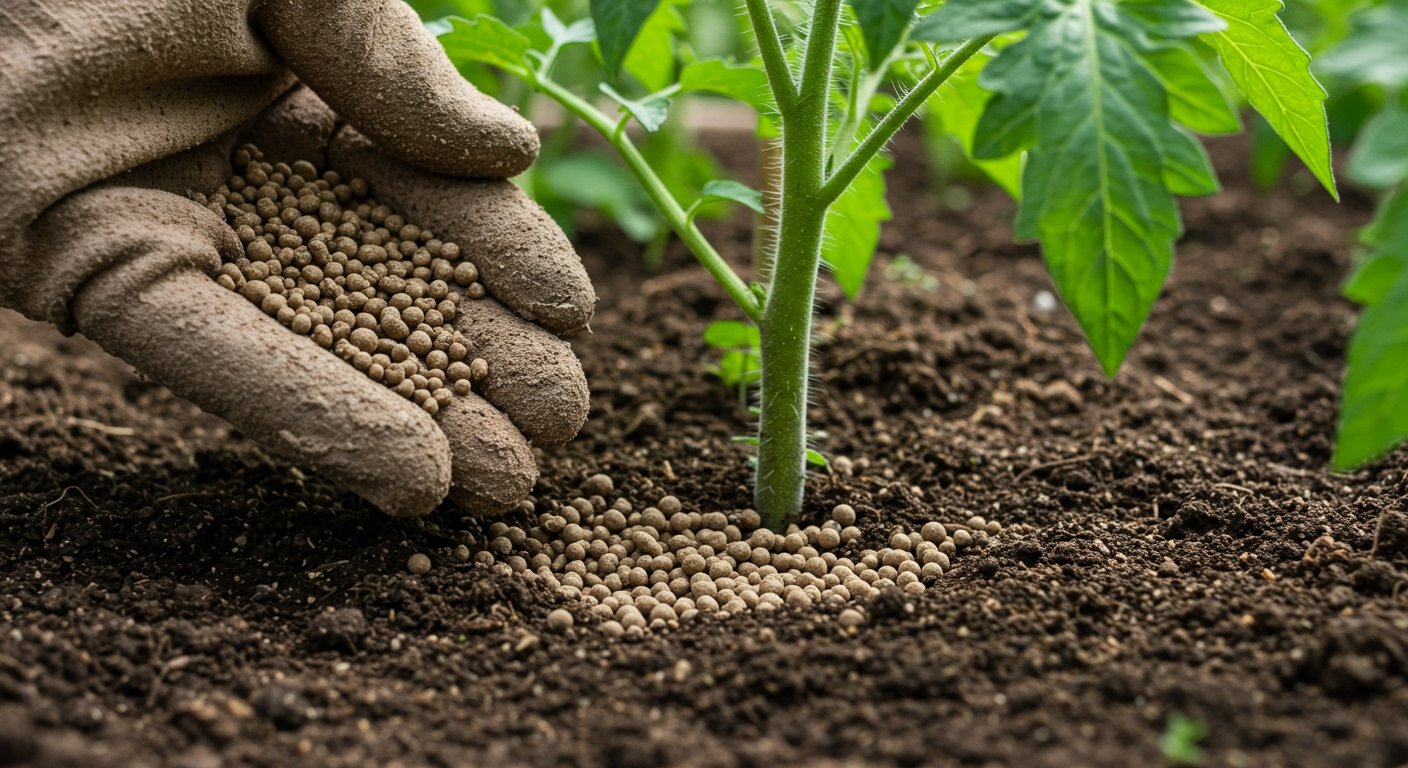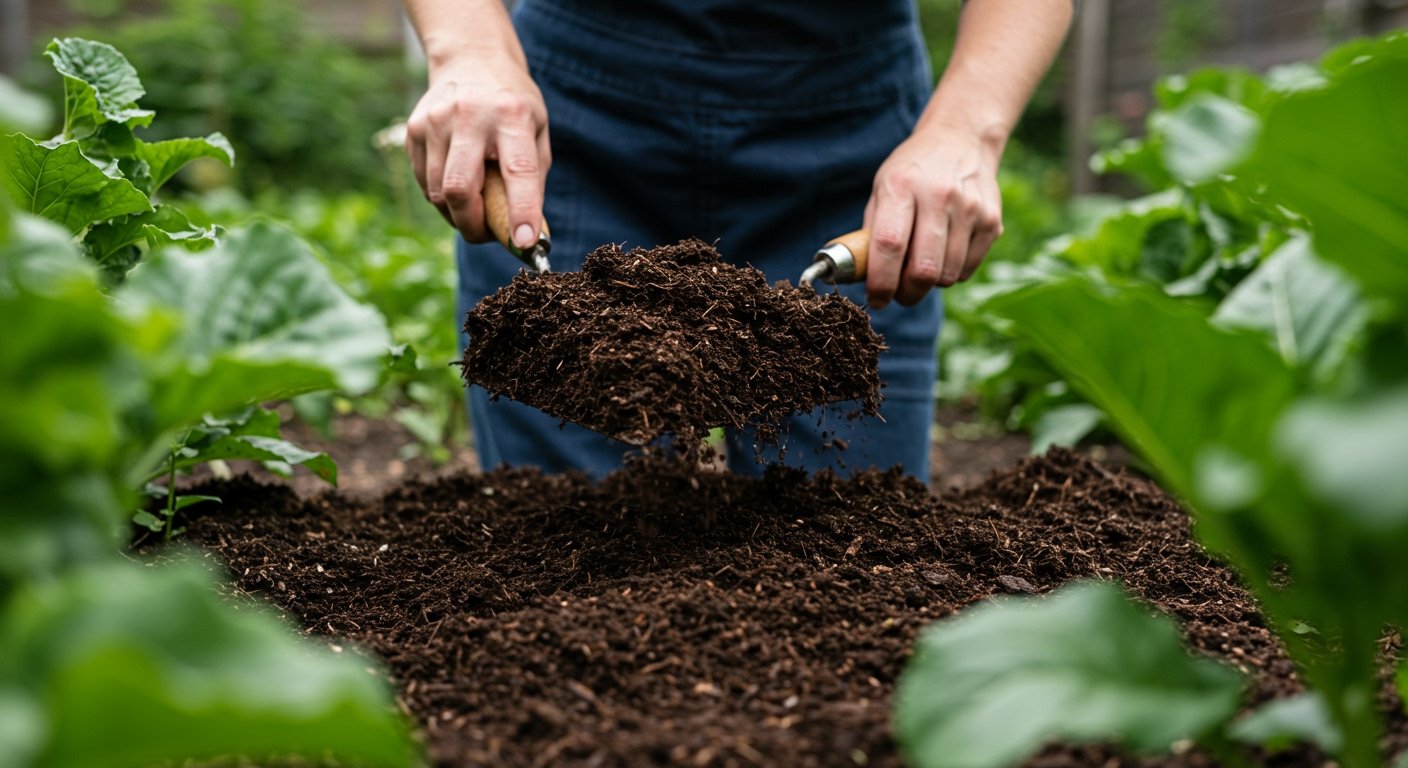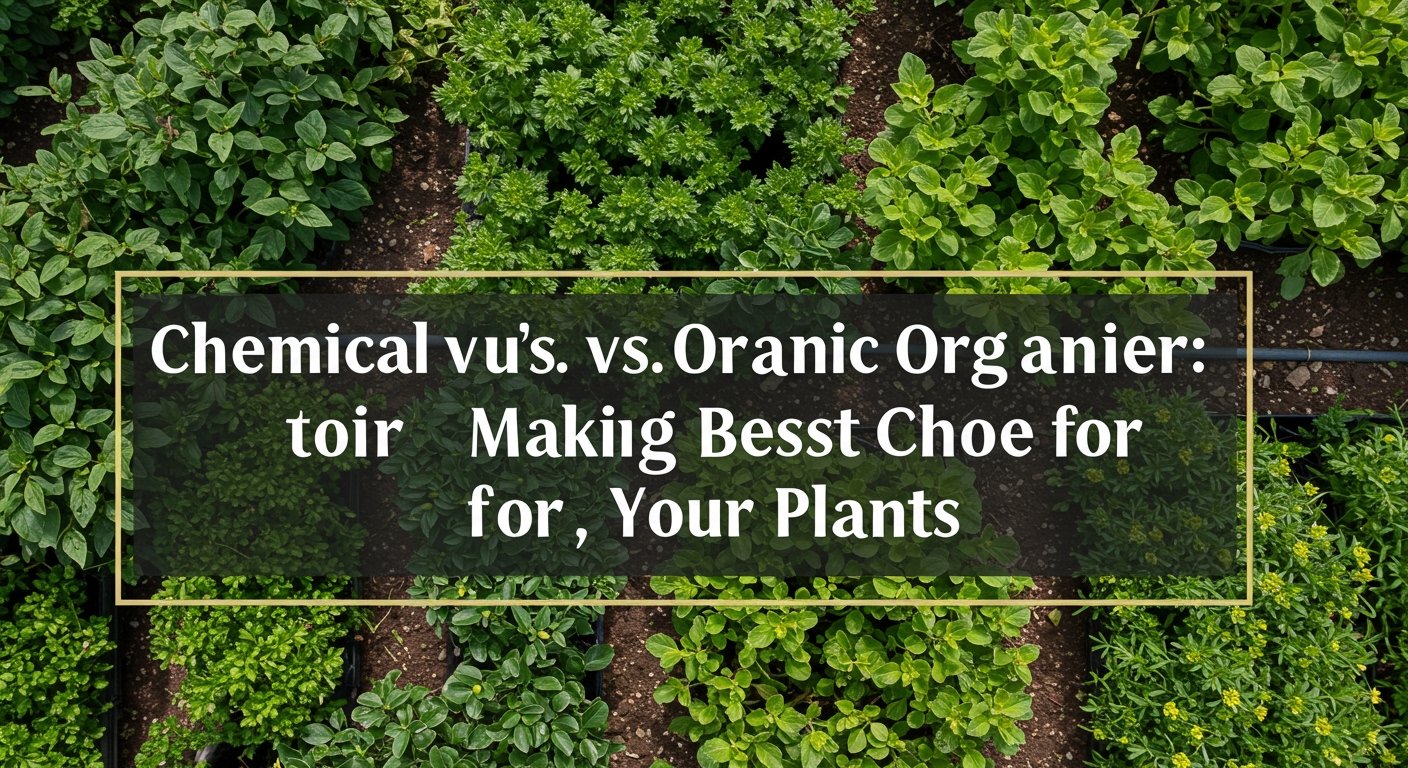Choosing the right fertilizer is a crucial step in ensuring your plants thrive. The debate between organic vs chemical fertilizers is common among gardeners, with each type offering distinct advantages and disadvantages. This guide will help you understand the differences, so you can make an informed decision for your garden’s health and the environment.
Whether you’re nurturing a small container plant or tending to a sprawling vegetable patch, the nutrients you provide are vital. Let’s delve into what makes each type unique, how they impact your plants and soil, and which option might be the best fit for your gardening style.
Understanding Chemical Fertilizers
Chemical, or synthetic, fertilizers are manufactured from inorganic materials, often derived from petroleum or natural gas. They are designed to provide plants with readily available nutrients, typically nitrogen (N), phosphorus (P), and potassium (K), along with other micronutrients.
How Do Chemical Fertilizers Work?
How do chemical fertilizers work? They deliver nutrients in a salt form that plants can quickly absorb through their roots. This direct and rapid nutrient uptake means you’ll often see quick results, such as greener leaves or faster growth, shortly after application. They are like a quick energy drink for your plants.
Pros
- **Fast-acting:** Nutrients are immediately available to plants, leading to rapid visible results.
- **Precise nutrient ratios:** You can get specific N-P-K ratios tailored to your plants’ needs.
- **Easy to apply:** Often come in granular or liquid forms that are simple to measure and spread.
- **Affordable:** Generally less expensive than organic options upfront.
Cons
- **Potential for over-fertilization:** Easy to apply too much, which can burn plants or cause nutrient runoff.
- **Environmental impact of fertilizers:** Can contaminate groundwater and surface water, contributing to algal blooms and harming aquatic life.
- **Long-term effects on soil:** May deplete beneficial soil microbes, reduce soil structure, and increase soil acidity over time.
- **No soil improvement:** Do not add organic matter, so they don’t contribute to long-term soil health.
- **Quick release vs slow release fertilizers:** Most are quick-release, requiring more frequent applications.

Exploring Organic Fertilizers
Organic fertilizers are derived from natural sources, such as animal manure, compost, bone meal, blood meal, fish emulsion, and plant-based materials. They work with the soil’s natural ecosystem to provide nutrients.
Benefits of Organic Fertilizers
One of the main benefits of organic fertilizers is their holistic approach. Instead of feeding the plant directly, they feed the soil. Microorganisms in the soil break down the organic matter, slowly releasing nutrients that plants can then absorb. This process improves soil structure, aeration, and water retention, creating a healthier environment for roots.
Pros
- **Improves soil health:** Adds organic matter, fostering a rich microbial ecosystem and enhancing soil structure.
- **Slow and steady nutrient release:** Reduces the risk of nutrient burn and provides a consistent food supply for plants.
- **Are organic fertilizers better for the environment?** Yes, they are more environmentally friendly, reducing runoff and water pollution.
- **Safe for pets and children:** Generally considered safer for accidental ingestion (though not recommended), making them a good choice if you’re wondering, **is organic fertilizer safe for pets?**
- **Sustainable:** Utilizes natural, renewable resources.
Cons
- **Slower results:** Nutrients are released gradually, so visible changes might take longer.
- **Less precise nutrient ratios:** Difficult to determine exact N-P-K content, making targeted feeding harder.
- **Odor:** Some organic fertilizers, especially manures, can have an unpleasant smell.
- **Cost of organic vs chemical fertilizers:** Can be more expensive initially, particularly for large-scale gardening.
- **Application:** May require more effort to apply or mix into the soil.

Organic vs Chemical Fertilizers: Key Differences Compared
When comparing synthetic vs natural fertilizers, it’s clear they approach plant nutrition from different angles. Understanding these differences is key to choosing fertilizer for garden success.
Nutrient Availability: Quick Release vs Slow Release
Chemical fertilizers are typically quick release vs slow release fertilizers, meaning nutrients are immediately available. Organic fertilizers, on the other hand, are slow-release, breaking down gradually to nourish the soil and plants over time.
Impact on Soil Health
This is where the debate of organic fertilizer vs synthetic fertilizer for soil health becomes crucial. Organic options significantly improve soil structure, water retention, and microbial activity. Synthetic fertilizers, while providing direct plant food, do not contribute to soil organic matter and can even harm the beneficial organisms that maintain soil health in the long run. The long-term effects of chemical fertilizers on soil can lead to compacted soil and a reliance on continuous applications.
Environmental Considerations
Regarding the environmental impact of fertilizers, organic choices generally have a smaller footprint. They reduce the risk of nutrient runoff into waterways, which can cause harmful algal blooms. While what are the benefits of synthetic fertilizers include targeted feeding, their environmental cost can be significant if not applied carefully.
Cost and Safety
The cost of organic vs chemical fertilizers can vary. While chemical fertilizers are often cheaper per application, organic fertilizers can improve soil health so much that you might need less over time. As for safety, natural fertilizers are generally safer around pets and children, a common concern for many home gardeners.
Which Type of Fertilizer is Best for Your Plants?
So, which type of fertilizer is best for plants? The answer often depends on your gardening goals, soil conditions, and personal values. If you need a quick boost for a struggling plant or want precise control over nutrient levels, chemical fertilizers might be suitable for short-term use. However, for long-term soil health, environmental sustainability, and a more natural approach, organic fertilizers are the superior choice.
Many gardeners find success by combining both methods—using organic matter to build soil health and occasionally supplementing with targeted chemical fertilizers for specific plant needs. Ultimately, regular soil testing can help you understand your garden’s unique requirements, guiding you to make the best organic vs chemical fertilizers decision for flourishing plants.
Frequently Asked Questions
What is the main difference between organic and chemical fertilizers?
Organic fertilizers improve soil structure and foster beneficial microbes, creating a healthier long-term growing environment. Chemical fertilizers provide immediate nutrients to plants but do not improve soil health and can harm beneficial soil organisms over time.
Do organic fertilizers work as fast as chemical fertilizers?
No, organic fertilizers typically release nutrients slowly as microorganisms break them down. This provides a steady supply of food for plants and reduces the risk of over-fertilization. Chemical fertilizers are often fast-acting.
Are organic fertilizers better for the environment?
Yes, generally. Organic fertilizers like compost or manure contribute to the soil’s natural fertility and reduce the risk of nutrient runoff into waterways, which can cause pollution. They are also usually safer for local wildlife and pets.
Is there a significant cost difference between organic and chemical fertilizers?
Organic fertilizers can sometimes be more expensive upfront, but they improve soil health, potentially reducing the need for constant reapplication and additional soil amendments over time. Chemical fertilizers often have a lower initial cost per application.
